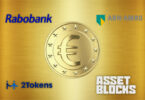Today, blockchain firm Power Ledger announced a partnership with the U.S.-based Midwest Renewable Energy Tracking System (M-RETS) to launch a Renewable Energy Certificate (REC) marketplace in the country.
M-RETS is a web-based REC registry used by power generators, utilities, marketers, and qualified reporting entities. The centralized solution tracks RECs and facilitates transactions by issuing a unique, traceable digital certificate for every 1 MWh of renewable energy generated by its affiliates. The solution prevents the double counting of RECs, an issue many are trying to address.
Meanwhile, Power Ledger has an existing partnership with renewables firm Clearway Energy Group to build a REC trading platform. The company said this project with M-RETS is the first phase of the deal with Clearway. So while M-RETS will do the track and trace, Power Ledger will provide the marketplace and log transactions.
“Similar to buying a concert ticket, you want to ensure it hasn’t already been used, and that you actually receive what you paid for,” said Jemma Green, Co-founder and Executive Chairman of Power Ledger.
“While M-RETS and other registries prevent the double claiming of RECs, the options to ensure you receive your RECs swiftly are few and costly.”
At least 29 U.S. states have regulations in place for utility companies to supply a portion of their electricity from renewable sources. RECs are tradeable commodities that represent 1 MWh of renewable power. M-RETS Executive Director Benjamin Gerber said the company saw about 10% growth in REC demand year-on-year, with the registry now processing over 100 million certificates annually.
Power Ledger estimates the U.S. REC market is worth over $3 billion annually. One of the hurdles is access to these RECs, which are spread all across the country. Companies trade RECs to meet their clean energy targets, but what they lack is a marketplace for carrying out such transactions with ease.
“We believe having a third party such as Power Ledger supporting the transactional process while utilizing the core M-RETS platform to track issuance, transactions, and retirements is another key step in modernizing the world’s renewable energy marketplace,” said Gerber.
Power Ledger has made headways in the blockchain energy trading space with partnerships in several countries, including Thailand, Japan, India, its native Australia, and Austria.
Blockchain firm LO3 Energy is working on a similar initiative in the U.S., and a few months ago, announced a partnership with Vermont’s Green Mountain Power (GMP) to launch a commercial local energy marketplace in the region. The platform also enables businesses to buy RECs from solar producers by way of a bidding auction.
Meanwhile, Thailand’s PTT is working with the Energy Web Foundation (EWF) on a blockchain-based renewables marketplace, which is expected to go live later this year.
Last year, Singapore’s SP Group launched a blockchain-powered renewable energy certificate marketplace.







